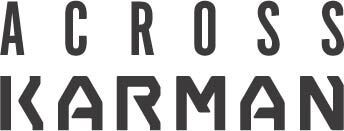Innovation Ecosystems: Stories from the Biological Frontier
<h3><strong>Innovation Ecosystems: Stories from the Biological Frontier </strong></h3><h4> </h4><h4>By: Eleonore Pauwels</h4><h4>Through a series of filmed interviews featuring players across the ecosystem of the health and life sciences we seek to identify and begin to define the emerging biological innovation ecosystem that is most suitable for the creation of an open and inclusive bioeconomy.</h4><h4>The current landscape of the biotechnology industry has shifted from being occupied predominantly by universities and government agencies, to having myriad startups and entrepreneurs, facilitating the ascent of citizen and do-it-yourself (DIY) science. This change in the types of actors has emphasized research alongside innovation – but requires a larger paradigm shift in the biotechnology industry.</h4><h4>As part of a two day workshop, “Innovation Ecosystems in Genomics and Biology” on September 22-23, 2015, Eleonore Pauwels from The Wilson Center and Eri Gentry from The Institute for the Future brought together experts who represent a range of expertise in biology and genomics to examine what forces will help innovation grow, while expanding ethical, moral, financial, and legal codes to accommodate such a shift in the industry.</h4><h4>From producing novel biofuels to targeted therapeutics, biotechnology has captured the attention of not only the scientific community, but those seeking solutions to complex social challenges as well. As the foundation of the modern economy shifts to a reliance on economic activity fueled by research and innovation in the biosciences, a window of opportunity has emerged for nontraditional actors to institute new models for innovation, incentive, and intellectual property. Such models may include ideas such as independent publishing, crowdfunded research, socially driven innovation and “consumer biotech”.</h4><h4>While research has been moving outside of traditional spaces, there needs to be a way to facilitate the transition from research to market for a growing community of non-institutional actors. An innovation ecosystem is one that transforms knowledge into products, processes and services that fuel economic growth, creates employment and wealth, and generates significant improvements in a region’s standard of living. Sustaining an innovation economy means evolving, adapting, re-imagining, and re-inventing to create and utilize new ideas and information into both existing and novel products and services. In order for non-institutional actors to claim a space for change however, fundamental questions addressing the composition of such an innovation ecosystem need be identified. How do we develop a system, which includes both traditional and nontraditional actors, that is capable of producing innovation?</h4><h4>In addition to traditional commercial innovation, there also exists the potential to incorporate novel ways of producing socially driven innovation defined by transparency, ethical acceptance, sustainability, and socially desirable outcomes. Through a series of filmed interviews featuring players across the ecosystem of the health and life sciences we seek to identify and begin to define the emerging biological innovation ecosystem that is most suitable for the creation of an open and inclusive bioeconomy.</h4>
Explore more related to this collection

Science and Technology Innovation Program
The Science and Technology Innovation Program (STIP) serves as the bridge between technologists, policymakers, industry, and global stakeholders. Read more









